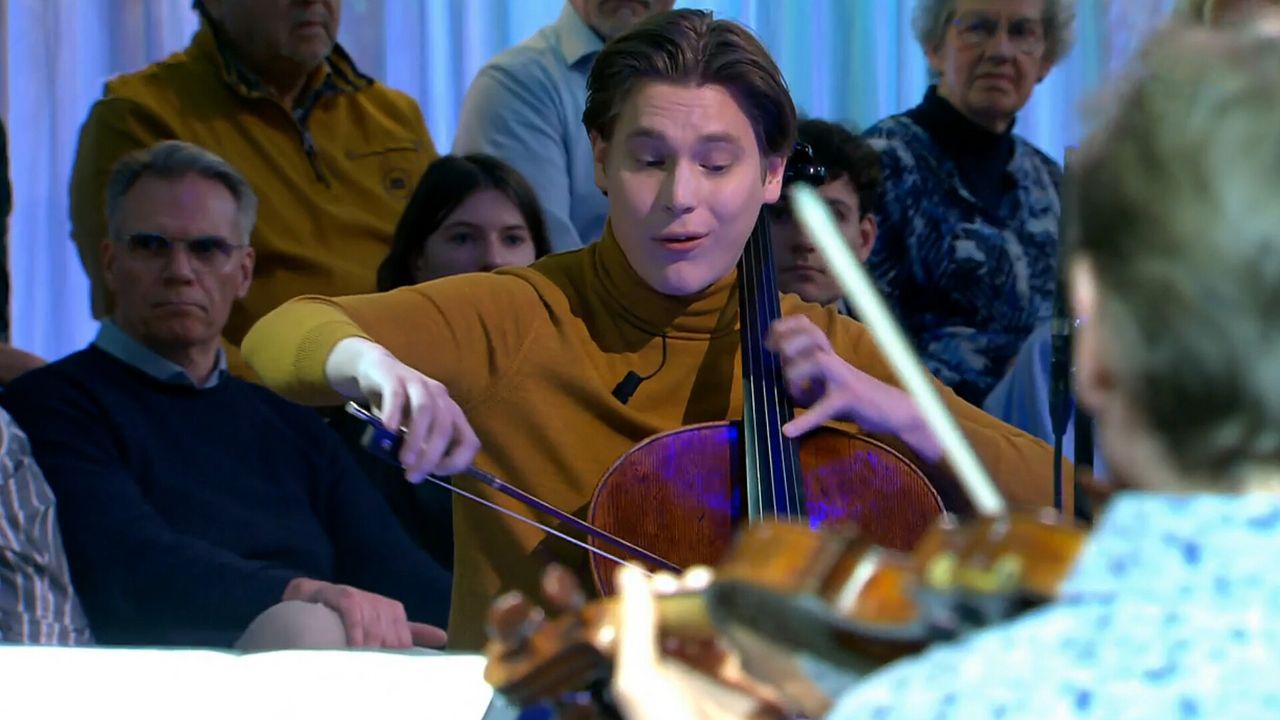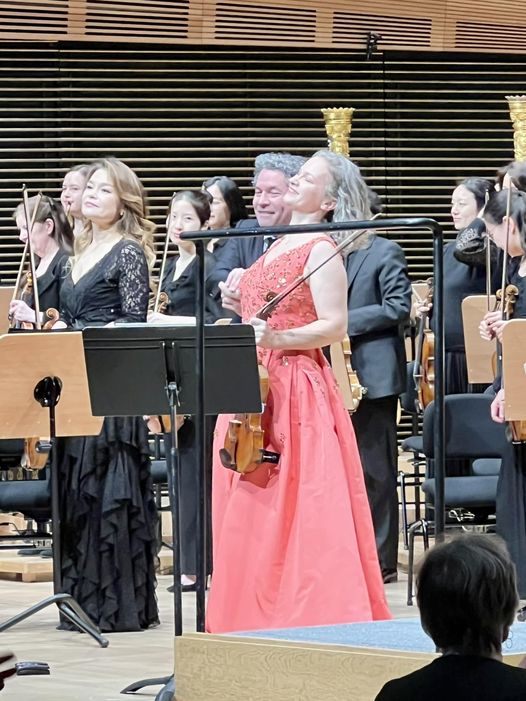Beethoven’s genes reveal no genius
Why BeethovenSamples of Beethoven’s hair, tested at the Max Planck Institute in Berlin, show no extraordinary predisposition to musical creativity, a new study has revealed.
The study, conducted by scientists from the Max Planck Institutes for Empirical Aesthetics (MPIEA) and Psycholinguistics (MPI-PL), analyzed Beethoven’s DNA to explore his predisposition for musical abilities … Utilizing modern DNA sequencing techniques, the researchers focused on a specific trait related to musical ability: beat synchronization. This trait, closely linked to musicality, was assessed through a genome-wide association study (GWAS) involving the ability to clap in time with a musical beat.
Results of the study, recently published in the journal Current Biology, revealed intriguing insights into Beethoven’s genetic predisposition for musical abilities. Despite Beethoven’s celebrated status as one of the greatest composers in history, his genetic profile showed an unremarkable polygenic score for general musicality when compared to modern population samples.
Science, huh?
More here.






I would suggest a different approach to a scientific study: assume that Beethoven is the gold standard for musical genius, compare his genetic heritage to that of other great composers, and see what they have in common.
Maybe that’s why we have all those sketches. It wasn’t easy.
His great problem was the fame of Mozart which developed tremendously during his lifetime, so he had posthumous competition, next to Haydn’s fame. He could write easily in Haydn’s and Mozart’s style but to give his own music profile, he had to work much harder than that.
It’s the struggle which makes the ART. Genius is only a small part of it. Spiritual depth makes up the biggest portion, plus imagination.
Wasn’t there a controversy about whether the “hair” was really from Beethoven? What was the outcome of that?
https://www.cell.com/current-biology/fulltext/S0960-9822(23)00181-1
That was my first thought. I looked into the article that was linked and there are eight extant bits of locks which claim to be Beethoven’s. Five of them had DNA from an identical donor, who was male. It is presumed that these are Beethoven’s, which seems highly plausible.
Thank goodness the article includes the following: “They cautioned against drawing definitive conclusions about Beethoven’s musical abilities based solely on genetic data,”.
The next question is what constitutes the naked emperor here – Beethoven (just a mindless racket which dragged us all away from Mozartian elegance) or Genetics when applied to intellectual matters. I’ve decided it’s probably the latter.
Ah, this obsession with a form of materialism that would allegedly be able to decipher the genetic causes of genius, purportedly in order to be able to replicate them and thus eventually create an entire society of geniuses. Can these researchers even consider the possibility that not everything might be reducible to matter — that the mysterious power enabling someone to write a piece such as Beethoven’s Op. 111 cannot be found in a genetic sequence — and that Beethoven himself may not even have been fully in charge of it?
Yes that’s very true. God sent the music to Beethoven and Beethoen wrote it down. God changed His mind 50 times so Beethoven had to cross it out 50 times.
That’s a genius idea.
God chose Beethoven as a vessel through which music passed, but allowed the composer to apply “blood, toil, tears, and sweat” to achieve the perfection.
Of course….
His isolation and inner suffering led him to be open to something beyond matter. He heard things other people could not hear.
The meaning of music is not located in the subjective experience of the listener (as materialist world view has it) but lies in the imaginative space the work conjures-up. And it was born within the imagination of the composer.
Which proves that science cannot measure musical capability in comparitive DNA, or genome comparisons. It would seem this test is akin to phrenology.
As long as science restricts itself exclusively to matter, everything psychological or artistic will escape it.
This kind of research effort reminds me of Nazism, when the “master race” tried to find an innate (genetic) cause (and justification) for almost everything – but failed miserably.
Genetic research certainly has the ability to do a lot of good, save many lives and improve health. You’re really stretching…..really throwing the baby out with the bathwater.
Yes, I agree, genetic engineering may do a lot of good in medicine and agriculture.
But I still can’t see the point in asking whether Beethoven’s genius had a genetic basis, or why not.
It’s the old nature vs nurture debate that cannot be resolved because phenotypes are always a result of genotypes interacting with the environment during ontogenesis and thereafter.
It needs more than a DNA sequence to decompose behavioural traits.
“But I still can’t see the point in asking whether Beethoven’s genius had a genetic basis, or why not.”
========
No one will force you to read any studies you’re not interested in. And then you went on to argue that the question is unanswerable. How do you know that if it’s not studied? And maybe someone else has a different hypothesis. Can that test that or are you the gatekeeper or knowledge?
To me the key phrase here is “focused on a specific trait related to musical ability: beat synchronization. This trait, closely linked to musicality …” Related to … closely linked to …. and in the blink of an eye it suddenly becomes the gold standard for judgement. Because it is most important to musicality? Or because it is something even a non-musical person can detect and understand and therefore base a study on? There are some marvelously entertaining YouTube vids showing parrots and elephants banging on drums in synchronization to what a person just played for them. Quick, take a hair (or feather) sample! They might be the next Carl Ditters von Dittersdorf.
What of the ability to detect and exploit distant but legitimate key relationships? What of the ability to compose an accelerando without change of tempo (or beat?). To hear incredible variations in an unpromising theme? To take a simple motif that others would do little with, and do everything with it? Those are the things that cause Bethoven to be regarded so highly. Engage in a marathon of Beethoven listening — all the piano and violin sonatas, all the quartets, whatever — and the first thing that you manage to utter is “boy this Beethoven fellow sure can synchronize those beats.”
Perhaps I do these scientists an injustice but as so often happens the most basic premise of the argument seems to be highly dubious to begin with, and the resulting edifice of argument begins to lean and topple alarmingly.
I suppose it is good to know that under this systematic test, Sonny & Cher would rank very highly.
A hair-raising analysis. And the beat goes on, the beat goes on…
Indeed, the ability to differentiate between mere ‘beat’ and actual rhythm – to move beyond mere goose-stepping to pop music, is a key to real musical achievement.
That does not surprise me at all!
Sally
For those of you who want to judge the study not based on secondary reporting, here is a link to its relatively concise original report.
https://www.cell.com/current-biology/fulltext/S0960-9822(24)00025-3?_returnURL=https%3A%2F%2Flinkinghub.elsevier.com%2Fretrieve%2Fpii%2FS0960982224000253%3Fshowall%3Dtrue
What’s the point of all this? Just listen to the music, which tells you all you could ever want to know!
OK so if Beethoven was no genius by DNA evidence, then how come billions of ordinary non-genius-IQ people today in 2024 cannot produce one Beethoven or even a Cimarosa??
That isn’t what they said. Read it again.
Judging musical talent by DNA is close to ridiculous and I must say, especially embarrassing coming out of Germany. There has been discussion about Beethoven’s ancestry and possible round about connections to the Moors due to the Spanish occupation of the Netherlands from 1579–1713. Why didn’t they apply their research to that much simpler question?
They did. Beethoven was “Arian”.
The study does not mention race, much less the term Arian.
Mr Osborne,
Why leftists have no sense of humor?
There is no judging of Beethoven’s talent here, rather it was his talent ( judged by his fine , irreplaceable music) that was the starting point. Trying to find a simplistic explanation in such reductive scientific procedures was always bound to fail. It’s not like the Human Genome Project has given a genetic explanation for the many such questions that have been asked of it – that’s the nature of polygenic inheritance with each gene having a small effect and so many genes and their interactions involved. But the worst reductive procedure here is reducing Beethoven’s musical mastery to beat synchronisation.
I am not a religious person. Nor am I a “spiritual” one, whatever that means. That being said, whatever may be said to constitute the “spirit” – probably as Freud meant it, as a constellation of psychological traits – Beethoven had an arrangement I believe unique to humankind. Of all that’s been written about the source and kind of Beethoven’s “genius” – again, whatever that means, particularly in musical terms – it is still J.W.N. Sullivan’s tome, “Beethoven: His Spiritual Development”, which I think remains the screed that gets closest to describing what is otherwise ineffable in such works as Opp. 111 & 132. There has been no greater composer than late Beethoven, of that I am sure, and in every way that counts, it isn’t a technical musical facility in those late works that sets them apart from anything composed by anyone ever, either before or after. Before such mysteries, science is utterly useless as a descriptive instrument. Or, for that matter, words. The only language we can avail ourselves of to understand and describe music is music itself.
Correct.
What sets him apart is his exploration of interiority, of the layers of psychological depth which only become accessible in utter isolation. This is comparable with meditating monks, but they don’t lay down their results in music.
Psuedo-science you mean.
Why not extract some DNA from the hair clippings and then use it to clone another Beethoven? Would the clone become a minimalist or serialist, or just another Einaudi? Or would he be able to complete the Tenth Symphony from the sketches that his ancestor left when he died?
There has been exactly such experiment at the Texas Institute of Technology in 2007, at the occasion of the celebration of the 237th year of B’s birth. The clone is now a 16-year teenager living in Forth Worth, under close supervision of a team led by Dr Hofstadter from TIT. Up till now the only musical interest shown thus far, is in heavy metal, being practiced in a garage.
Is it possible that Beethoven’s “musical genius” was the result of his father’s brutality?
According to Dr Hofstadter from the Texas Institute of Technology’s Department of Musical Studies, every great composer had an abusive father. Worst appears to have been JS Bach’s, who forced his son to study counterpoint from his 3rd year onwards.
John Adams for instance did not have an abusive father, nor did John Williams, or Philip Glass.
No, and that shows quite clearly in their music.
There’s a clapping gene?
What gene do the people who clap on one and three have?
The test shows they had an odd case of the clap.
(sorry)
Audiences around the world give musicians on stage the clap all the time after the completion of a pleasing concert.
They should have tested Puff Daddy.
Wait until they start finding criminality traits in DNA…..
Aren’t you a couple of names behind?
doesn t it prove that those gene tests are no good?